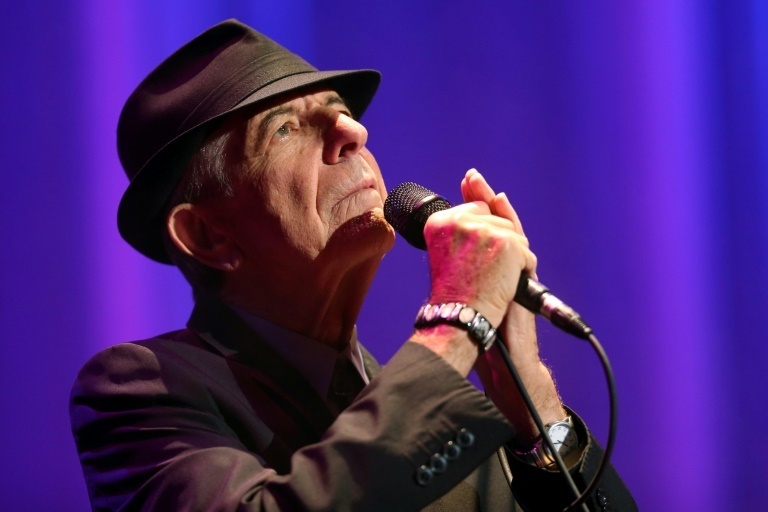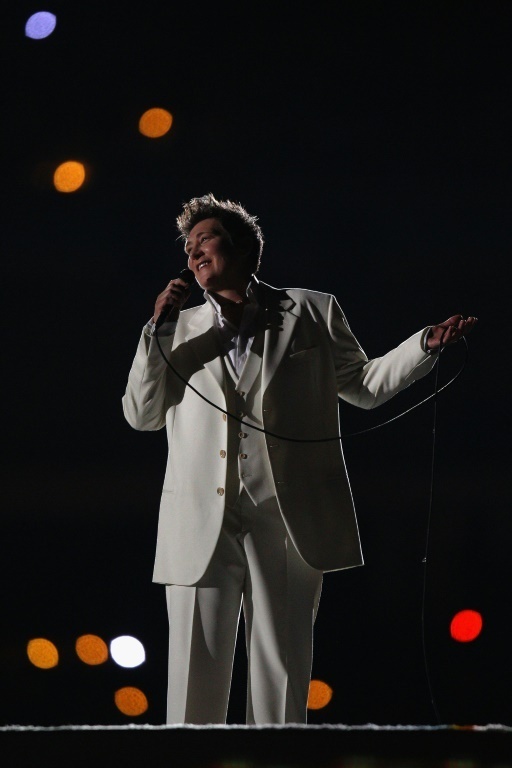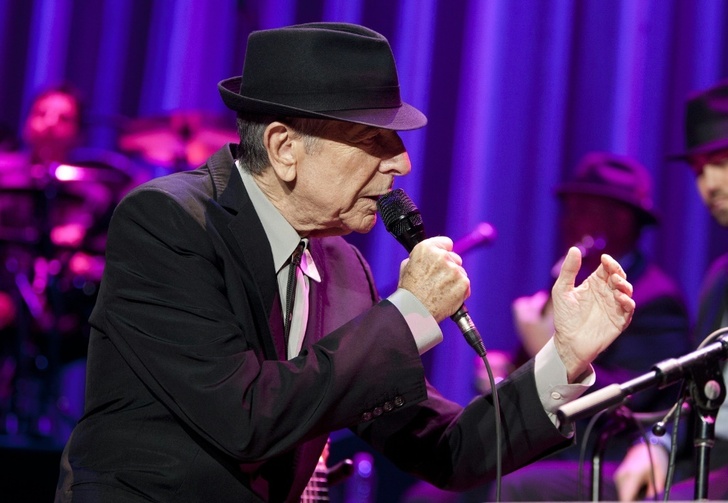Leonard Cohen's song "Hallelujah" pretty much flopped when it came out nearly 40 years ago.
Today, it enjoys cult status and has been performed by everyone from Bob Dylan to Jeff Buckley and Bon Jovi -- even appearing in animated hit "Shrek" -- in a unique evolution detailed in a new documentary film.
The tune rich in religious and erotic references by the Canadian poet, who died in 2016, has made the rounds.
In 2008, a gospel version of the song was performed by Alexandra Burke on the British TV talent show "The X Factor."
That year the song placed 1st, 2nd and 36th in the British music charts: the versions by Burke, Buckley and the original by Cohen himself.
"I do not know of any other song with that trajectory," said music journalist Alan Light, who wrote a book on the song called "The Holy or the Broken," published in 2012.
- 'Snowball is rolling' -
"This song took 10 years, 20 years, going through all these different versions, around these different corners and then it gains this momentum. The snowball is rolling, and it gets bigger and bigger and bigger," Light told AFP.
He spoke in New York at a showing of the new documentary "Hallelujah: Leonard Cohen, a Journey, a Song," for which was an adviser and producer.
The film shows that, at first, the work was destined for obscurity.

Cohen left out dozens of the verses he had written.
The Columbia record label refused to release "Various Positions," the LP that included "Hallelujah," in the United States. It did come out in Europe, among other the places.
Competition was stiff that year, and slow, poetic songs were not crowding the top of the charts.
"It's 1984. It's boom time in the music business. This is the year of 'Born in the USA,' and 'Like a Virgin' and 'Purple Rain,'" Light said, referring to huge hits by Bruce Springsteen, Madonna, and Prince.
A few years later, Dylan lifted the song out of the darkness with a blues version.
Then John Cale, one of the founders of The Velvet Underground, covered it in 1991, followed by Buckley's in 1994.
- Bono apologizes -
The documentary shows how "Hallelujah" became a feature of popular culture, with new generations discovering it in the first "Shrek" movie in 2001 and in "Sing" in 2016.
In 2010, the Canadian singer K.D. Lang belted it out at the Winter Olympics in Vancouver. And 11 years later "Hallelujah" was performed again at a tribute to victims of the coronavirus pandemic, with President Joe Biden in attendance on the eve of his swearing in.

"If to you it's a religious song, that's there. If to you, it's a heartbreak song, great, that's there. You can do that," Light said.
"There's no wrong way to do it," he added, noting a ukelele version by US musician Jake Shimabukuro.
Not all agree, however.
In an interview for his book on "Hallelujah," Light recalled how U2 frontman Bono apologized for a 1995 trip-hop version of the song he recorded, in which he talked his way through the lyrics, rather than sang.
arb/dw
© Agence France-Presse
Your content is great. However, if any of the content contained herein violates any rights of yours, including those of copyright, please contact us immediately by e-mail at media[@]kissrpr.com.
Source: Story.KISSPR.com

